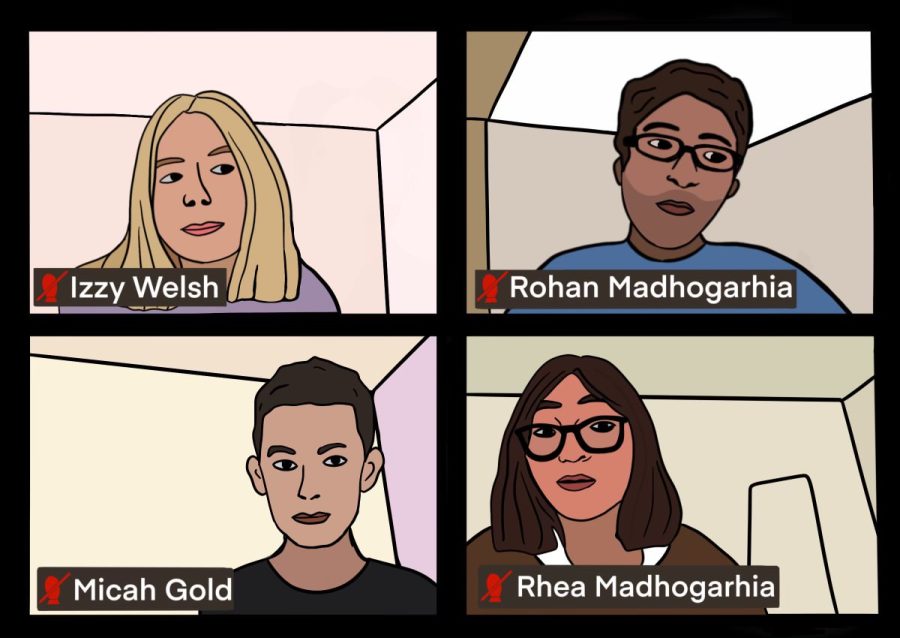Ethics Bowl places third in virtual regional tournament
Illustration by Alexa Druyanoff
Ethics Bowl seniors discuss topical issues in the virtual Southern California High School Ethics Bowl tournament.
February 10, 2022
Ethics Bowl team members participated in the virtual Southern California High School Ethics Bowl on Feb. 5. Club co-leader Micah Gold ’22, Editor-in-Chief and co-leader Tessa Augsberger ’22, co-leader Rhea Madhogarhia ’22, co-leader Izzy Welsh ’22, Assistant News Editor Natalie Cosgrove ’23, Assistant Arts and Entertainment Editor Georgia Goldberg ’23 and Rohan Madhogarhia ’22 competed at the tournament. The team debated issues such as predictive policing, private data usage and the rights of unvaccinated people in triage situations before a panel of judges.
The team advanced to the semifinal round of the tournament, placing third overall. Rhea Madhogarhia said although the tournament was virtual, she appreciated having in-person practices after a year of meeting over Zoom.
“This year, the seniors on the team were the only ones to ever experience an in-person season and tournament, so it was really fun to get back to discussing cases and holding meetings in person, rather than on Zoom,” Rhea Madhogarhia said. “I think in-person meetings really helped build a successful team dynamic, which was helpful in making sure we had a good team connection during the online competition.”
Rhea Madhogarhia said she initially signed up to partake in Ethics Bowl over debate because she believes Ethics Bowl promotes more quick thinking and requires less policy research.
“While I really enjoyed being a parliamentary debater when I was younger, I began to find that debate for me became less about argumentation or crafting logical responses and more about research and preparedness,” Rhea Madhogarhia said. “I really enjoy environments that push you to think quickly on your feet and wanted to continue exercising that skill. Ethics Bowl was the perfect mix of learning something new, ethics and continuing the parts of debate I enjoyed.”
Gold said since the team did not work closely with a faculty advisor following former advisor Dr. Charles Berezin’s retirement last year, they worked together to prepare for the tournament.
“This was the first year that we did not have a coach helping us prepare,” Gold said. “In prior years, the now-retired Berezin had helped us run through the cases and write up responses. This year, the entire process was student-led.”
Team member Carter Staggs ’23, who said he did not compete in the tournament, said he enjoys Ethics Bowl because it allows him to engage in discourse on moral issues and hear the viewpoints of his teammates.
“I like the idea of engaging in conversation about ethical concepts with my classmates and then having to find common ground and reconcile our ideas,” Staggs said. “What I enjoy most about Ethics Bowl is being able to see the different approaches different club members take to the same ethical problems.”































